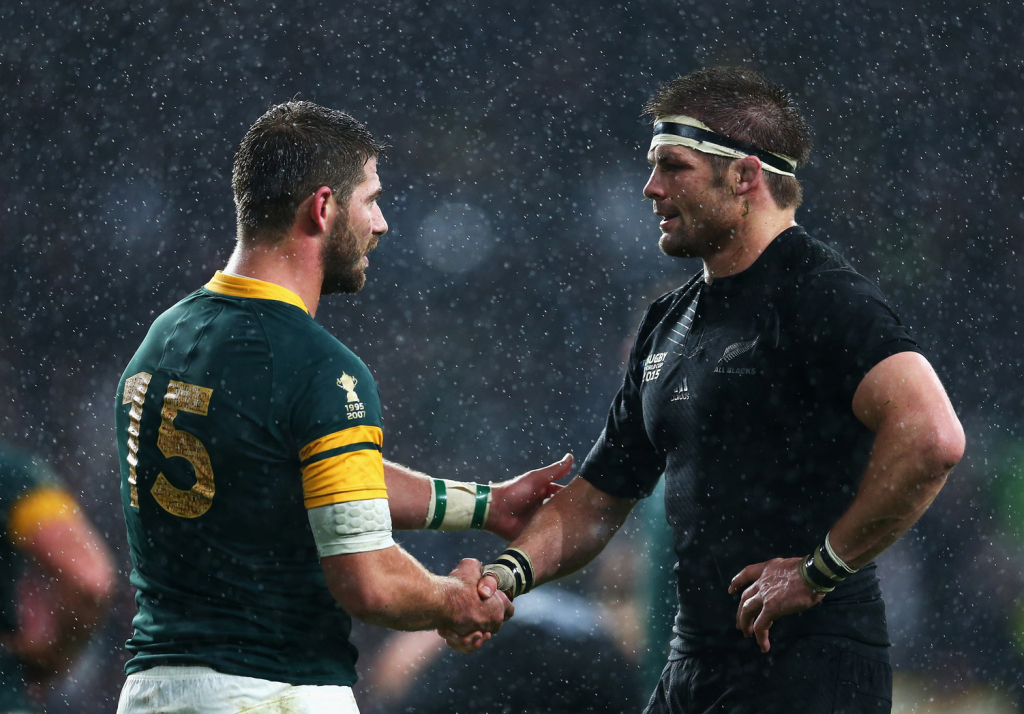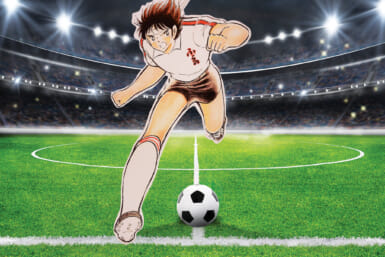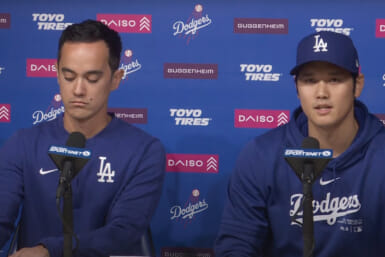The 2019 Rugby World Cup is coming to Japan this fall and the competition is shaping up to be an absolute classic. It’s already made history as the most sought-after host country for travelling fans, with record overseas ticket sales, including visitors from as far away as Antarctica.
Twenty international teams will take part, and at this stage – five months until the competition gets under way – the playing field looks to be wide open. New Zealand will hold their customary “favorites” tag. Wales are coming off the back of a Grand Slam. Ireland will be looking to rectify their poor Six Nations Championship. England look as strong as they have done for a couple of years now. South Africa and Australia, despite erratic recent form, are never to be underestimated. Here’s how the 2019 RWC teams are currently ranked…
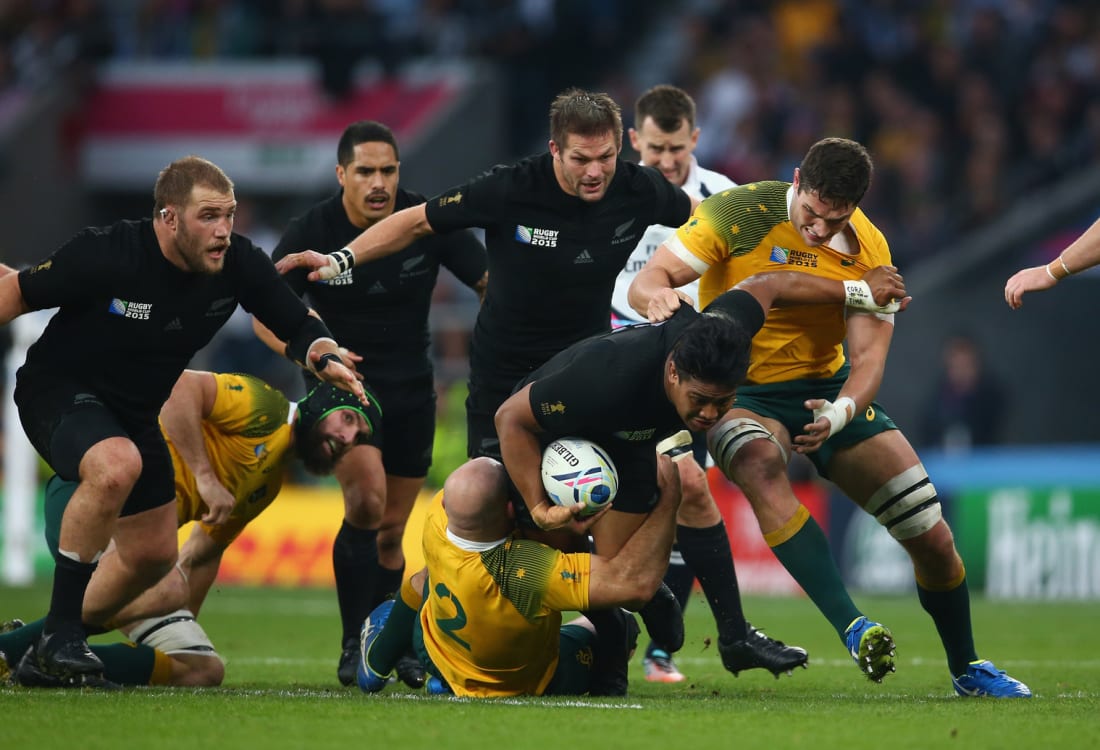
Photo courtesy of World Rugby
1. New Zealand
What can be said about New Zealand’s rugby team that has not already been said? Aiming for their third World Cup glory on the trot. Haven’t lost in the competition since 2007. Ruthless. Efficient. They simply know how to get the job done. A defeat against a strong Ireland side in November last year, and a slip up at home to South Africa in last season’s Rugby Championship, will however give the rest of the competition just the faintest glimmer of hope.
Key Player: Beauden Barrett. The out-half maestro is electric on his day, a true world-beater in every sense of the word.
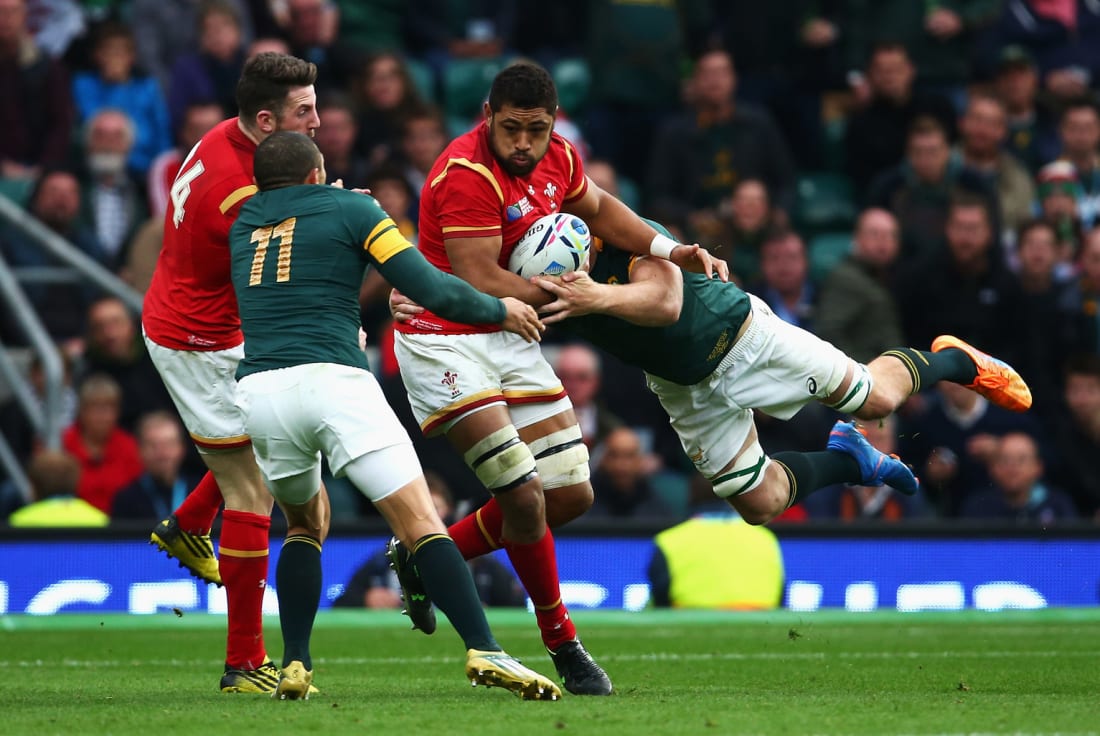
Photo courtesy of World Rugby
2. Wales
Wales have crept up the World Rugby rankings like a thief in the night. Quietly but effectively going about their work under the expert tutelage of coach Warren Gatland. Last month, they achieved their third Six Nations Grand Slam during Gatland’s tenure, seemingly out of the blue. They may not play the most attractive brand of rugby but, as the coach said himself, they have “forgotten how to lose.” Currently sitting on a 14-match winning streak, that’s difficult to argue with.
Key Player: Alun Wyn Jones. The Welsh captain and second-row seems to be in the form of his career at age 33. His vast experience has proved instrumental in Wales’ recent rise to second in the world.
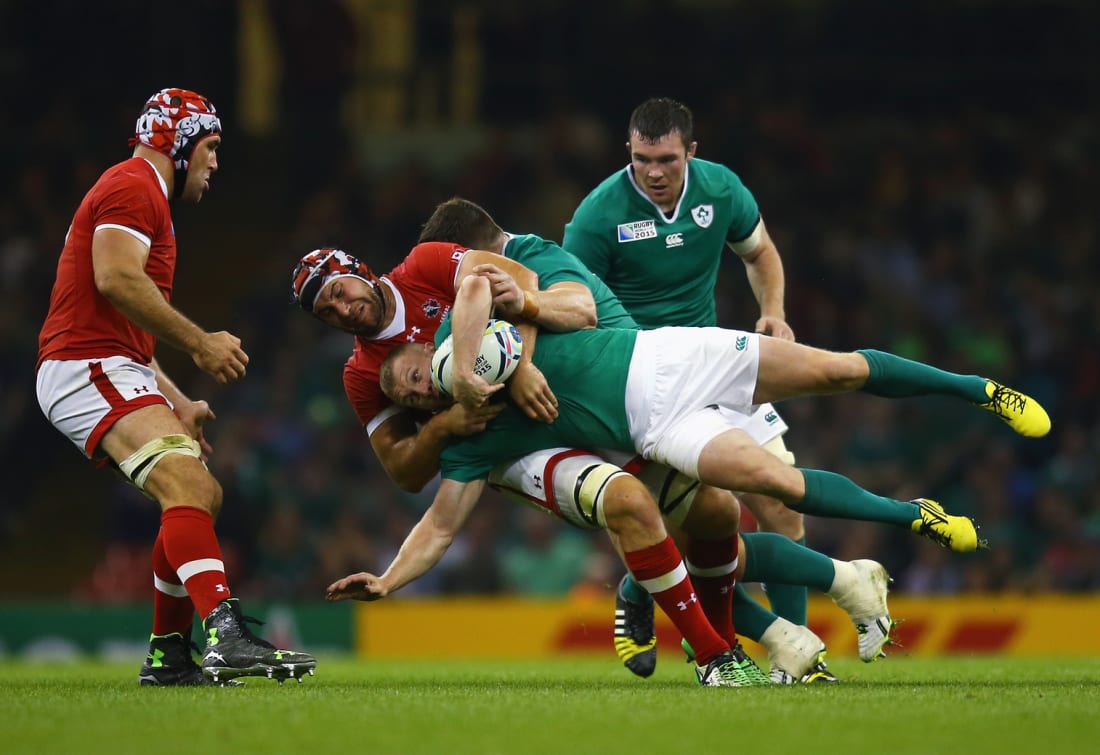
Photo courtesy of World Rugby
3. Ireland
2018 signified arguably the greatest year in Irish rugby history; a Six Nations Grand Slam, a first-ever defeat over the All Blacks on Irish soil, and a real belief that they could go on to lift the Webb Ellis Cup in Japan this year. Their fall from grace at the beginning of 2019 has been as surprising as their performances were lacklustre. After getting smashed in Dublin at the hands of a merciless English side on the opening day of this year’s Six Nations, they limped through the rest of competition. Another pummelling at the hand of Wales to punctuate the championship cast serious doubts over Ireland’s World Cup prospects. Yet they have been gifted with a relatively easy qualifying group, which may just prove decisive in regaining their top form.
Key Player: Johnny Sexton. Ireland’s out-half was World Player of the Year last year and he will need to be somewhere near that scintillating best in September if Ireland are to bounce back.
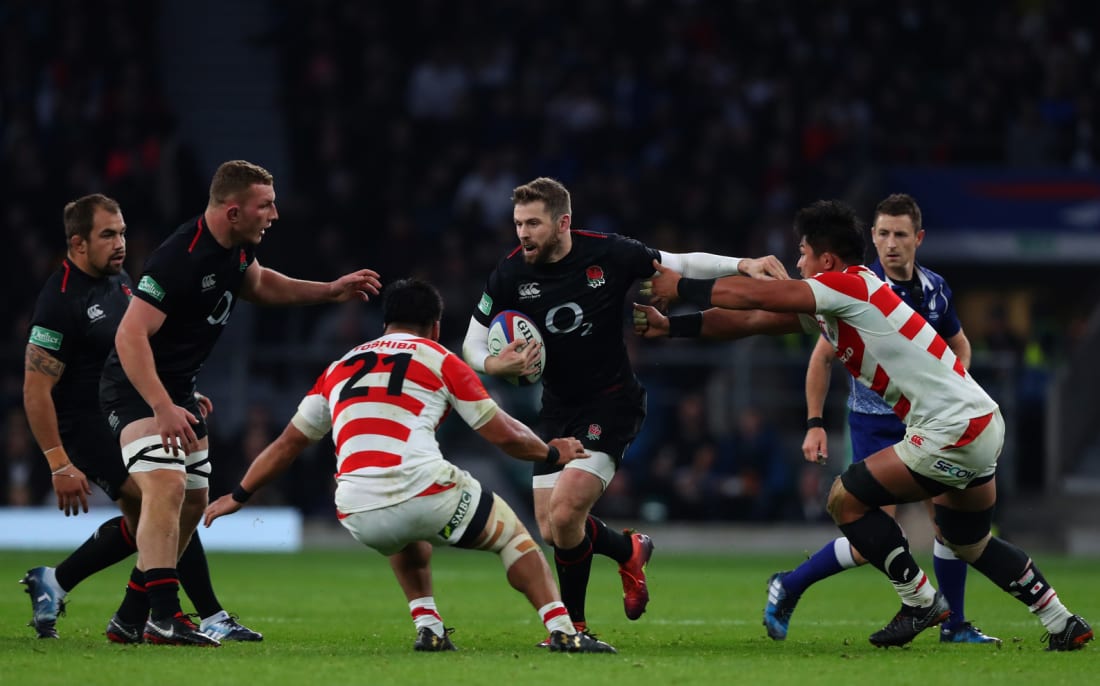
Photo: Shutterstock
4. England
England are shaping up very nicely coming into rugby’s biggest showcase. Despite losing to Wales in the Six Nations, they played the most attractive brand of rugby throughout the competition. Their half-backs were excellent (although they’ll be fretting over the fitness of Ben Youngs who has just been ruled out for the remainder of the club season), they have a mammoth pack that are capable of bullying even the staunchest of opposition, and, they have some really exciting talent littered throughout their backline. If they play the way they did against Ireland in Dublin this year, they’re capable of beating anyone.
Key Player: Billy Vunipola. The rampaging number 8 is one of the best in the world on his day. His ability to give England go-forward ball will be critical to their chances of success.
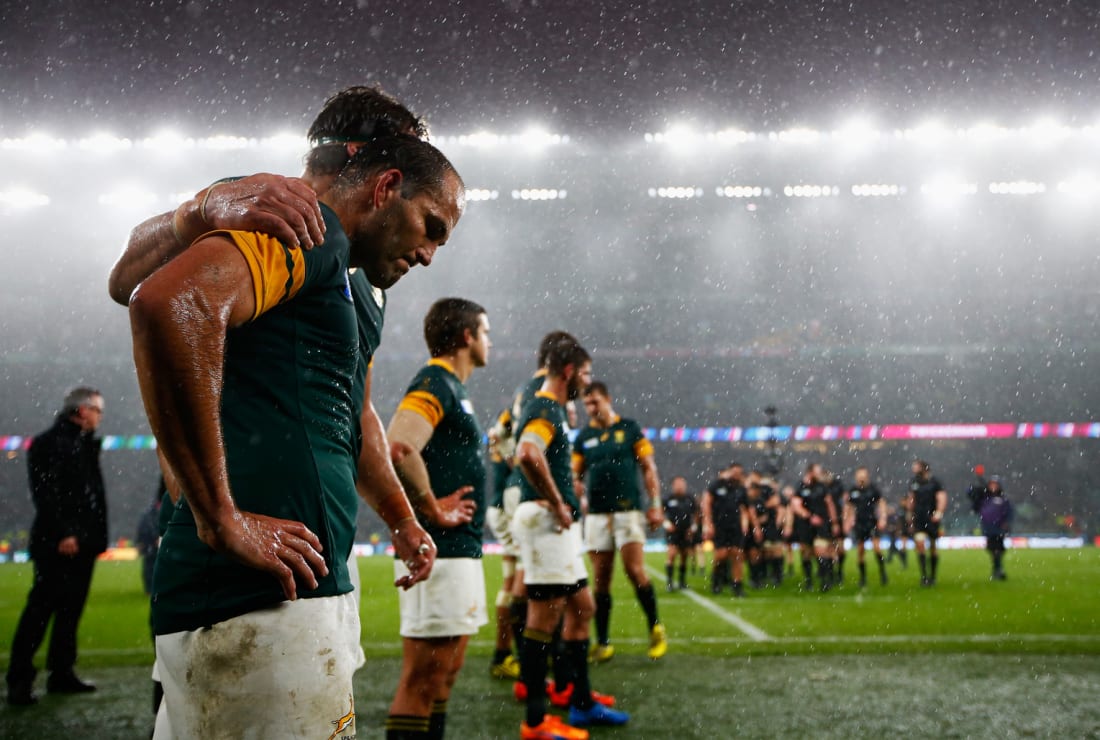
Photo courtesy of World Rugby
5. South Africa
South Africa have never really been the same side since the glory days of the last decade. A changing of the old guard and a variety of interesting selection choices led to years of inconsistency to which the Springboks are not usually accustomed. A victory in New Zealand last year will serve them well going forward however, especially with their Pool B clash against the All Blacks coming up in Yokohama on September 21.
Key Player: Malcolm Marx. The young hooker is a dynamo around the field and set piece specialist to boot. The Springboks will be hoping he can bring both facets of his game to Japan if they are to pose a serious challenge.
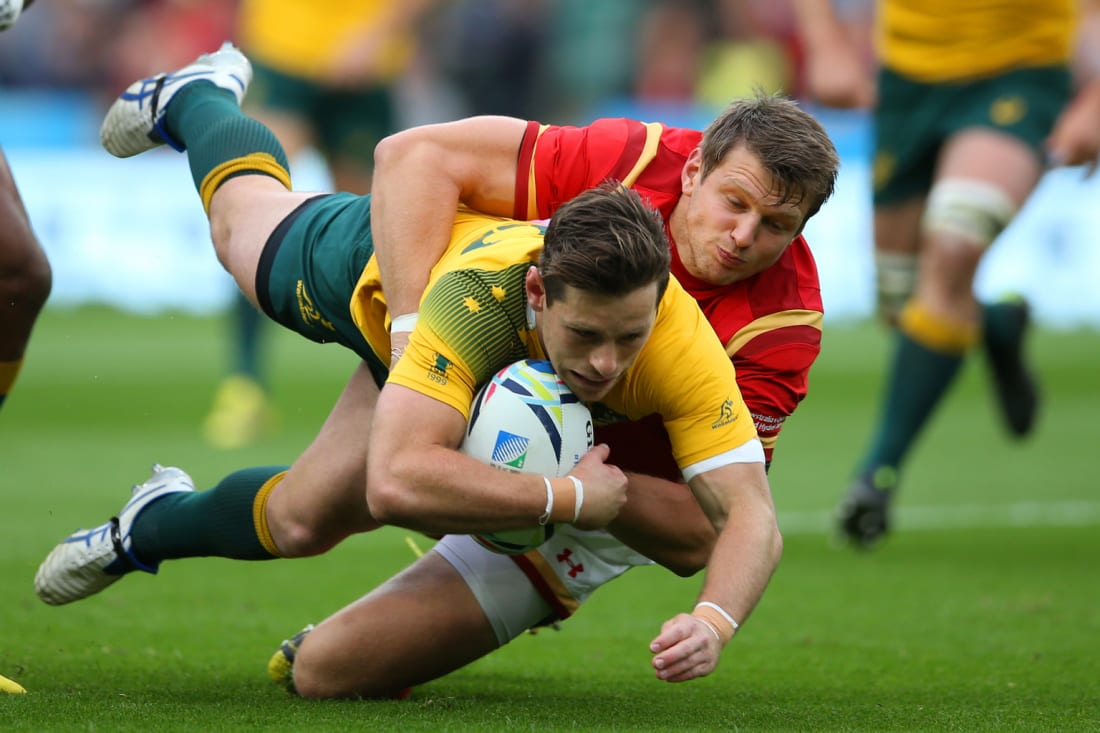
Photo courtesy of World Rugby
6. Australia
Australia have been a rather sorry state of affairs over the last few years as their off-the-field issues continue to plague their game on the field. Coach Michael Cheika was brought in to shake things up in 2014 but, despite bringing them to World Cup final the following year, he has yet to find any real level of consistency. 2018 was particularly poor as they chalked up a meagre 4 wins in 15 tests. In saying that, the two-time champions do tend to perform well in the competition regardless of recent form, this is something that other teams will no doubt be wary of.
Key Player: Michael Hooper. The Wallabies captain and open-side flanker is an absolute menace at the breakdown. He’ll need to be at his very disruptive best in Japan.
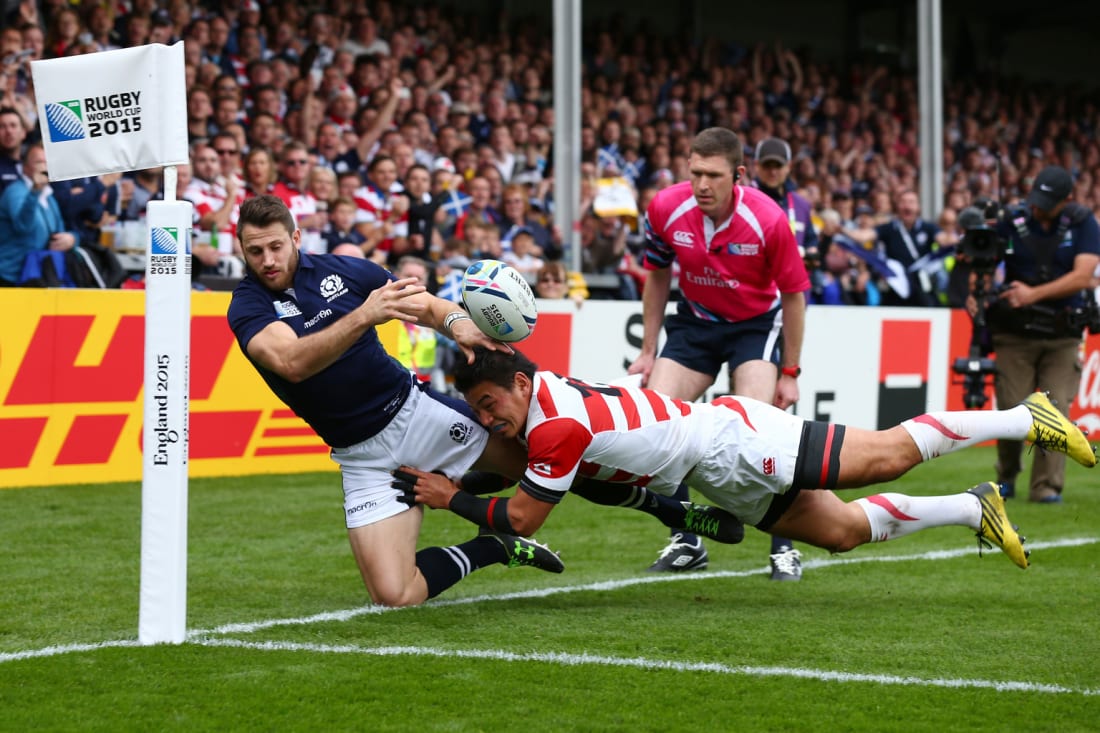
Photo courtesy of World Rugby
7. Scotland
One step forward and two steps back, this is the most apt way to sum up the Scottish rugby team. Every time it looks like they’re catching up with the rest of the northern hemisphere powerhouses, they flatter to deceive. Two things will give them confidence however. Firstly, they will have received some momentum from their outrageous second-half comeback against England last month. Secondly, they proved that they can be competitive on the world’s biggest stage in the 2015, which is something they’ll be hoping to emulate.
Key Player: Stuart Hogg. When Scotland’s full-back gets ball in space he is a terror for defences. If you kick badly against the men in blue, Hogg certainly has the potential to punish you.
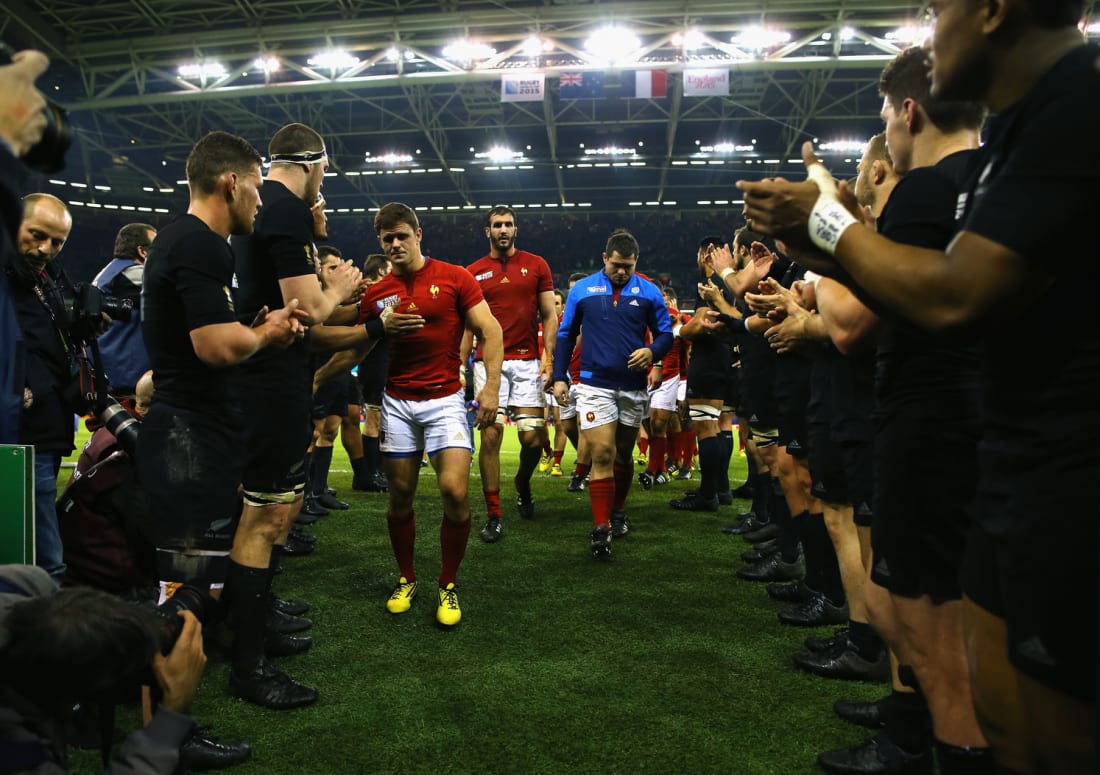
Photo courtesy of World Rugby
8. France
In the last six or seven years, the flamboyant French flare has been replaced by an attitude of laissez-faire. While the club sides continue to attract some of the best players in the world, the international side remains in a state of complete disarray. They have no direction, very little game plan and their desire to play for one another appears to be non-existent. The French were predictably unpredictable for many years in the World Cup, but in 2019 I’m afraid, they’re a long way from where they need to be.
Key Player: Antoine Dupont. The Toulouse scrum-half was one of the only shining lights in another dim French Six Nations campaign. The nation will be looking to him for inspiration come the autumn.
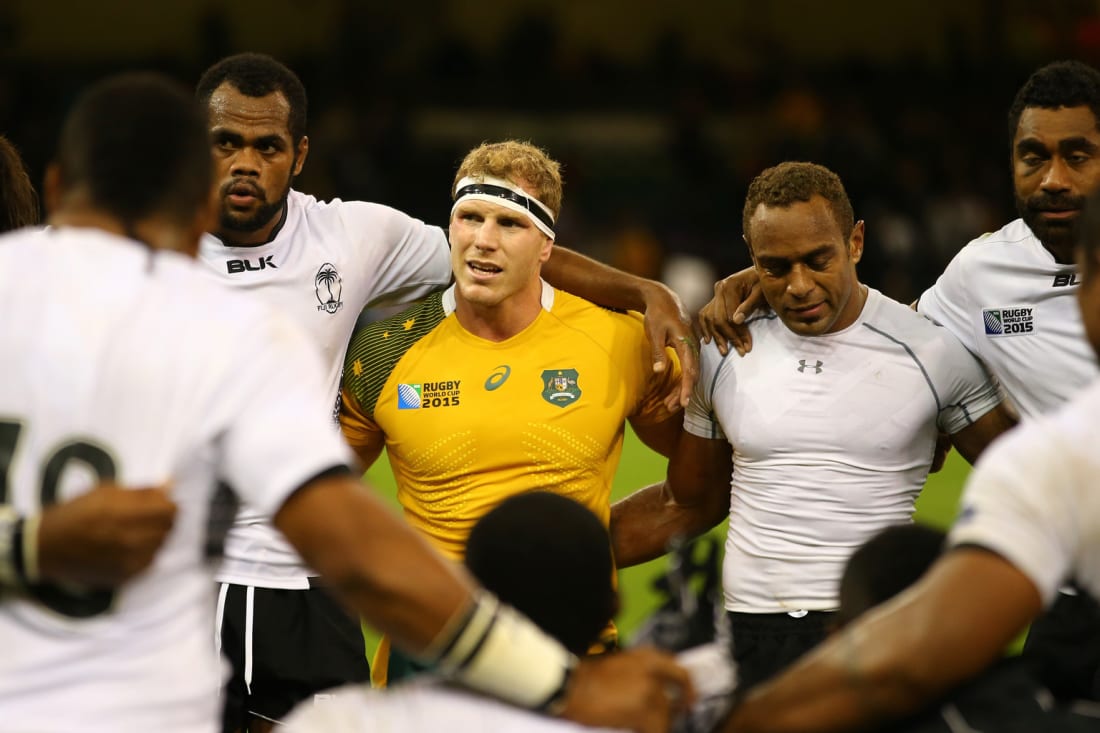
Photo courtesy of World Rugby
9. Fiji
On current form, Fiji are the best of the Pacific Islander nations, even being touted by some as the tournament’s “dark horse.” Their attractive style of rugby – a mixture of brute force, athleticism and throwing caution to the wind – will no doubt capture the hearts of traveling fans in Japan. So while it can come at their own expense, you can put money on this Fijian side playing some highly entertaining rugby. With Australia in a minor crisis, they may fancy their chances at causing a bit of a World Cup upset over the Wallabies in Sapporo on September 21.
Key Player: Leone Nakarawa. The second-rower was granted the ECPR European Player of the Year in 2018 after a string of incredible performances for the Parisian giants Racing 92. He is the embodiment of everything that is great about Fijian rugby.
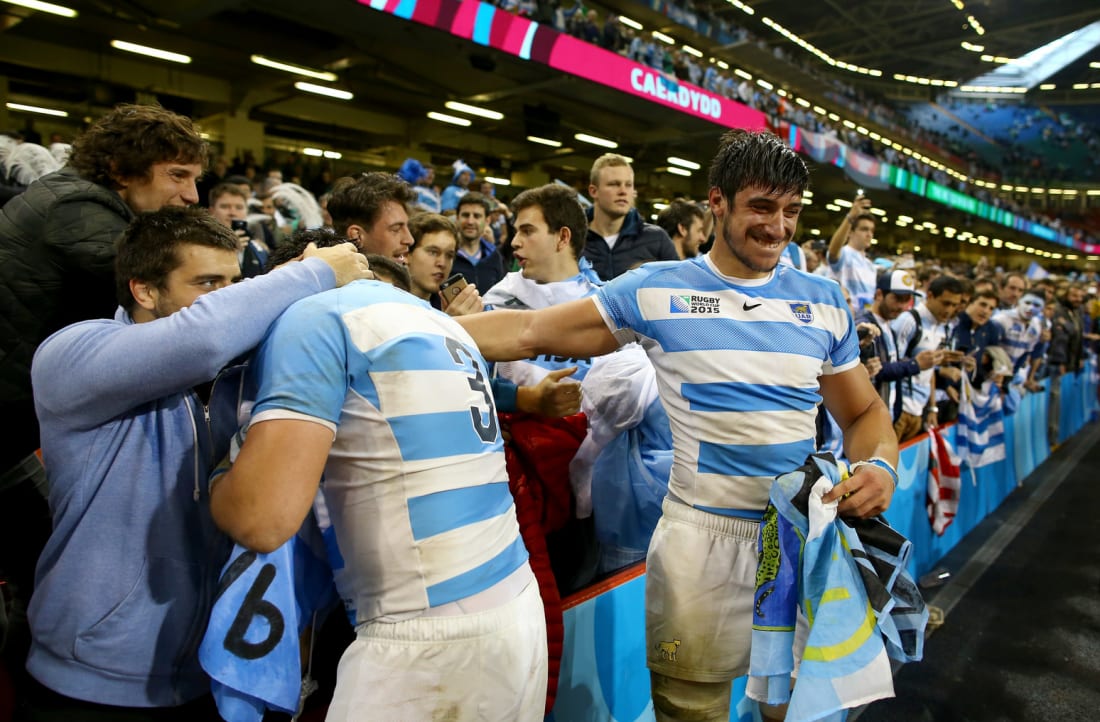
Photo courtesy of World Rugby
10. Argentina
Argentina’s lowly 10th place in the current world rankings belies their World Cup credentials. The Pumas have reached the semi-final stage in two of the last three iterations of the competition and Ireland fans will no doubt remember how they decimated the boys in green in their 2015 quarter-final encounter. Since their inclusion the southern hemisphere’s Rugby Championship, Argentina have shown that they can go toe-to-toe with the top sides in the world on a consistent basis. A poor 2018 autumn international series north of the equator however, leaves them with little time to gain the momentum they may need going into a tough World Cup group.
Key Player: Nicolas Sanchez. Argentina’s record points scorer is one of the beneficiaries of team coach Mario Ledesma’s decision to pick previously ignored players from European clubs. This could prove vital for the Puma’s World Cup bid.
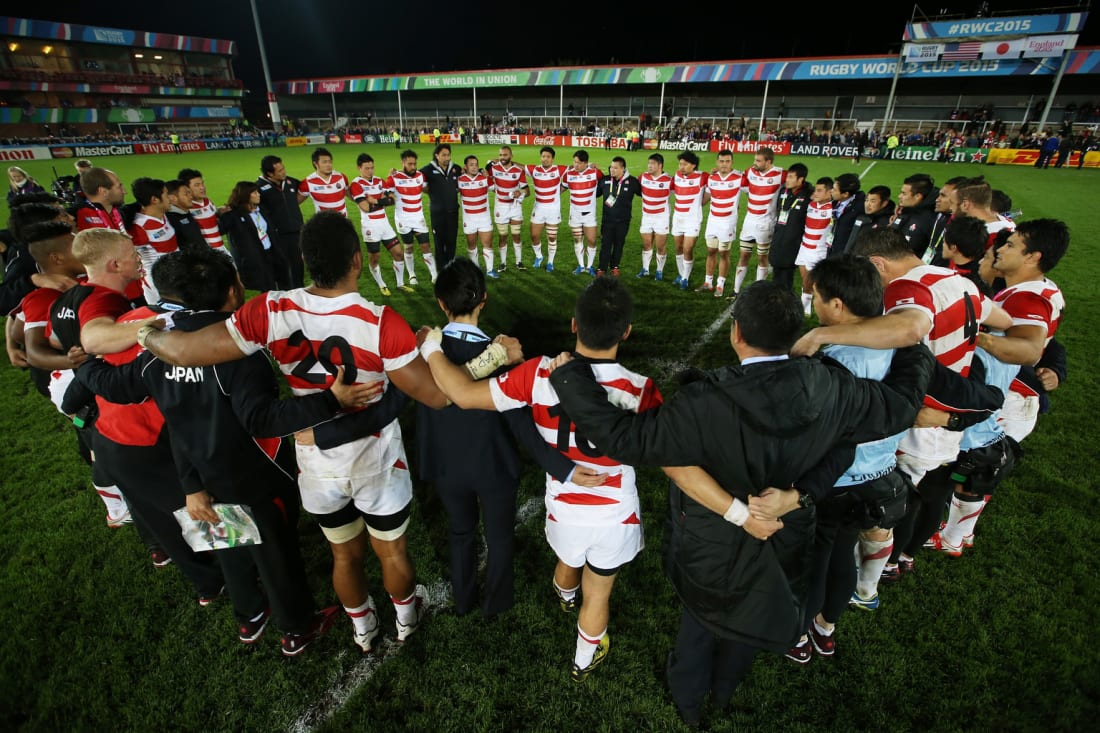
Photo courtesy of World Rugby
11. Japan
The host nation is in a particularly interesting situation. After shocking South Africa in the pool stages four years ago, it looked like they may kick-on to become a serious threat when the World Cup came to their own turf in 2019. However, five months out from the competition and they still haven’t managed to rekindle their 2015 form. With the Tokyo Sunwolves recent, and frankly quite brutal, culling from the Super Rugby Championship last month, it has thrown the world of Japanese rugby into a bit of turmoil. They can take solace in the fact that the Sunwolves valiantly fought for their lives in order to stay in the competition, which will hopefully translate across to the national team later this year.
Key Player: Michael Leitch. The back-row captain was instrumental in leading Japan to the greatest shock in the history of the sport four years ago. He’ll have the hopes of the nation resting on his shoulders come the autumn, and he’ll need to be up to the task.
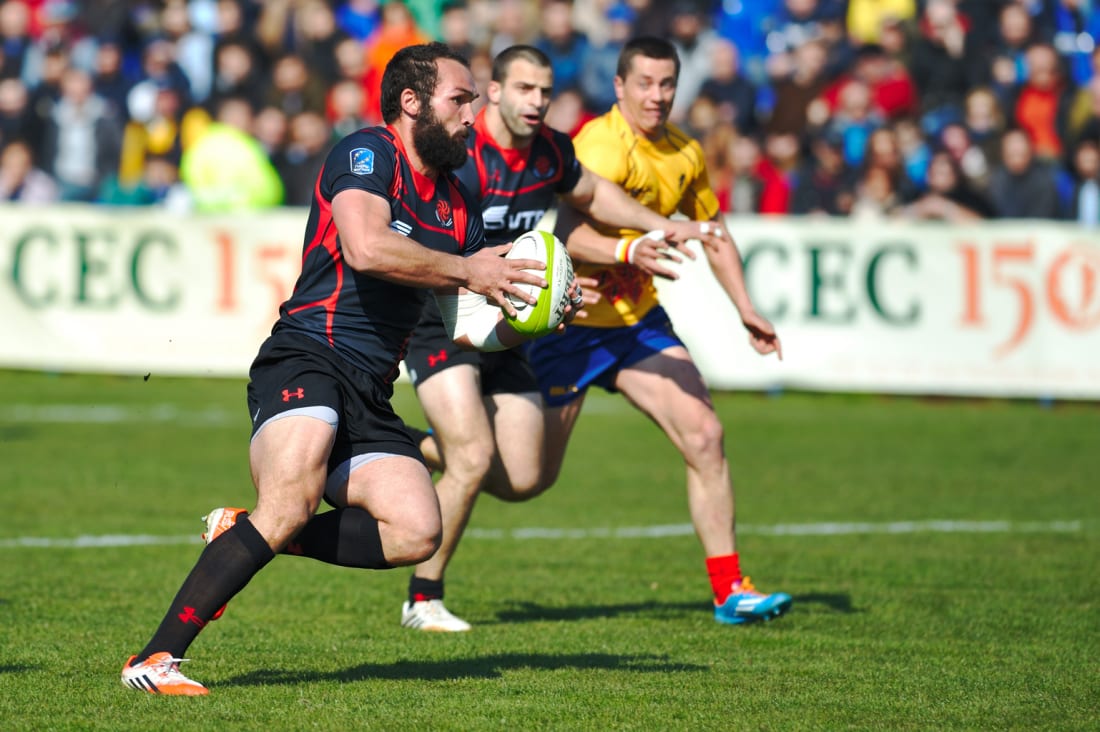
Photo: Shutterstock
12. Georgia
Georgia have been banging on the door of European rugby’s powers that be for several years now. Many pundits believe that the eastern European side are at least as deserving as Italy, if not more so, to be included the annual Six Nations championship. Another solid year in 2018 saw them win 8 out of 11 tests. In true eastern European fashion, they are a big and grizzly side that will take some beating, regardless of their opposition.
Key Player: Mamuka Gorgodze. The 34-year-old, nicknamed Godzilla, is a giant of a man. He can be a truly destructive ball carrier when he gets the chance.
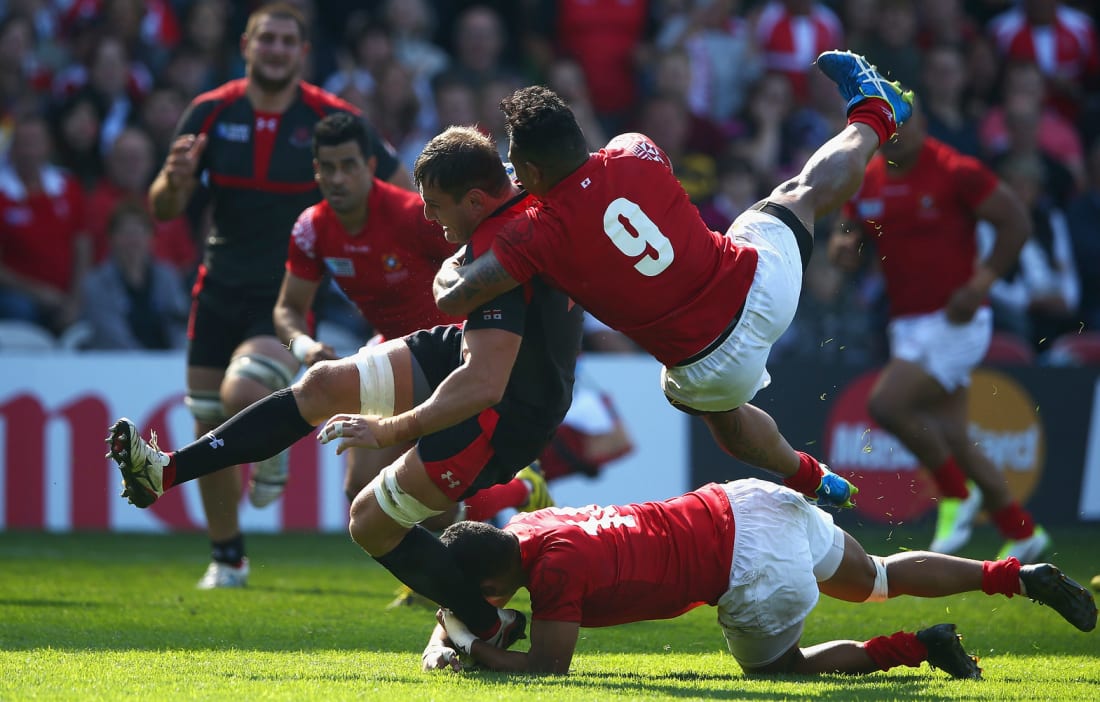
Photo courtesy of World Rugby
13. Tonga
For many years Tonga were the ‘whipping boys’ of the Pacific Islands, but that’s no longer the case. Bar a thrashing at the hands of Wales, they had a very competitive calendar year in 2018 which included victories over their rivals Fiji and Samoa. In spite of that, they will need to pull something extra special out of the bag if they are to cause any Pool C upsets this autumn.
Key Player: Siale Piutau. The Tongan captain is one of the English Premiership’s most dangerous centres.
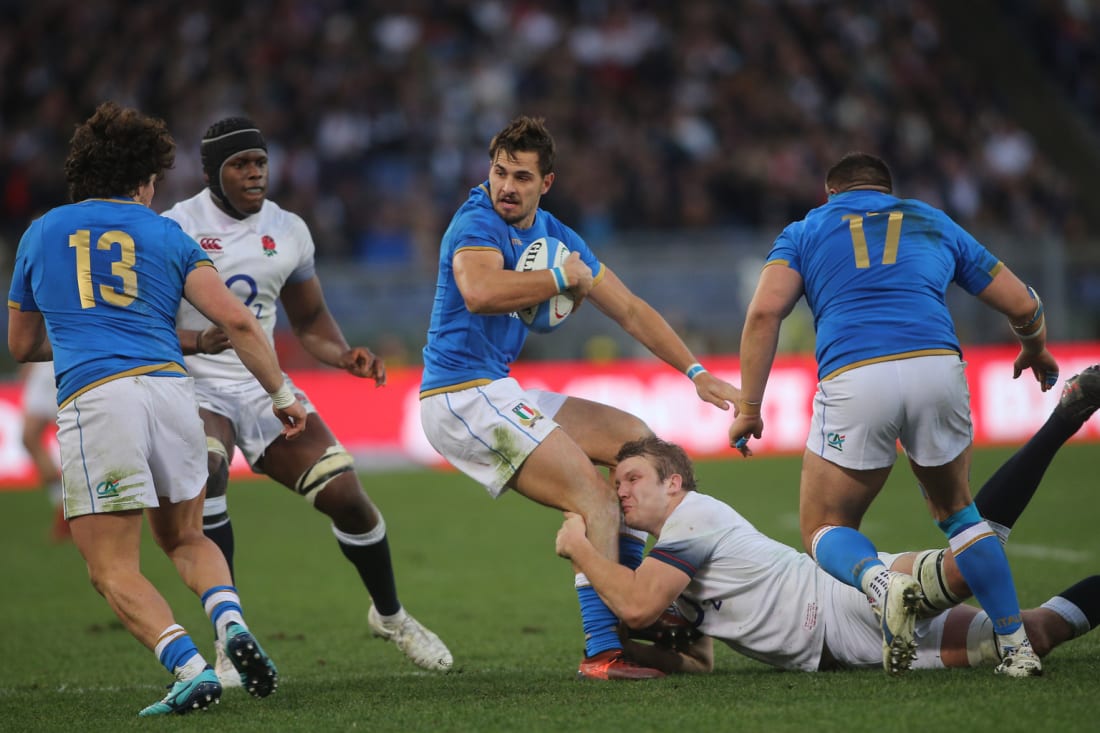
Photo: Shutterstock
14. Italy
Italy coach, Conor O’Shea, cut a rather forlorn figure in the stands as the Azzurri struggled to compete again in this years Six Nations. The word on the ground is that his hard work at the grass roots level of the sport in Italy may come to fruition down the line, but the jury is still out on whether or not he’ll still be at the helm to witness it. With the prospect of facing both New Zealand and South Africa in the World Cup pool stages, there is little hope of Italy reaching a first World Cup quarter-final.
Key Player: Sergio Parisse. The Argentine-born number 8 holds the record for the most international test defeats ever, a number that has recently surpassed 100. Though that is a most unfair accolade to be bestowed upon a man who is a true gladiator of Italian sport.
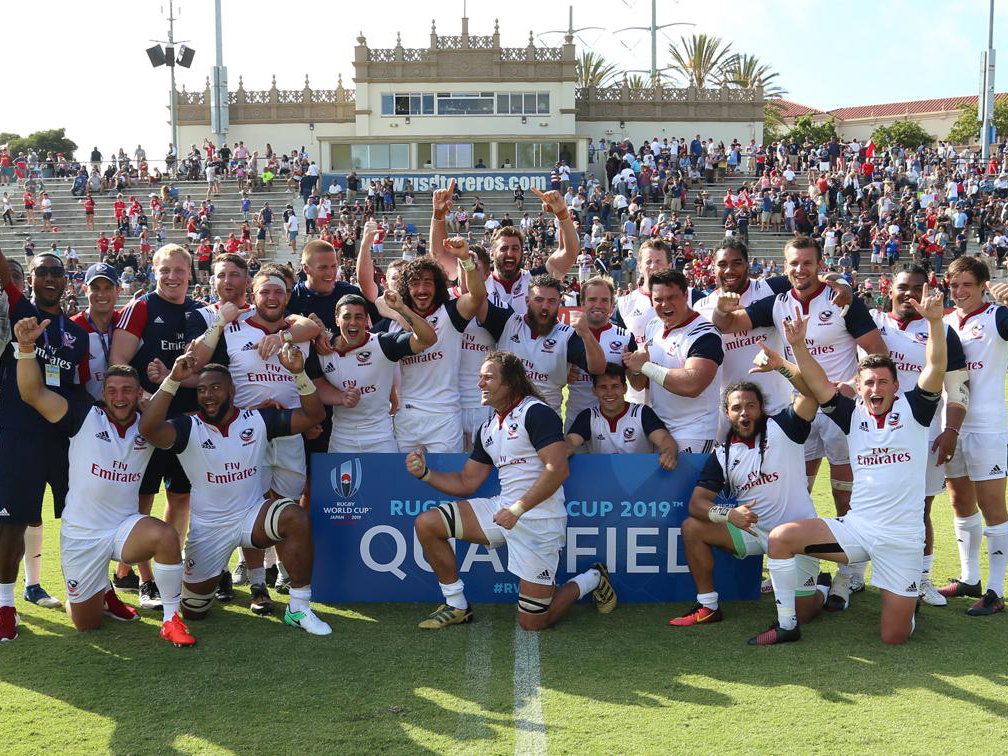
Photo courtesy of World Rugby
15. United States
The Unites States are one of the world’s most burgeoning international rugby teams, though its most notably evident in the recent success of their national 7’s team. The hope is that this will have a positive effect on the 15-man game too, especially with a World Cup on the horizon.
Key Player: Blaine Scully. The versatile back and captain is currently plying his trade in Wales at the Cardiff Blues.
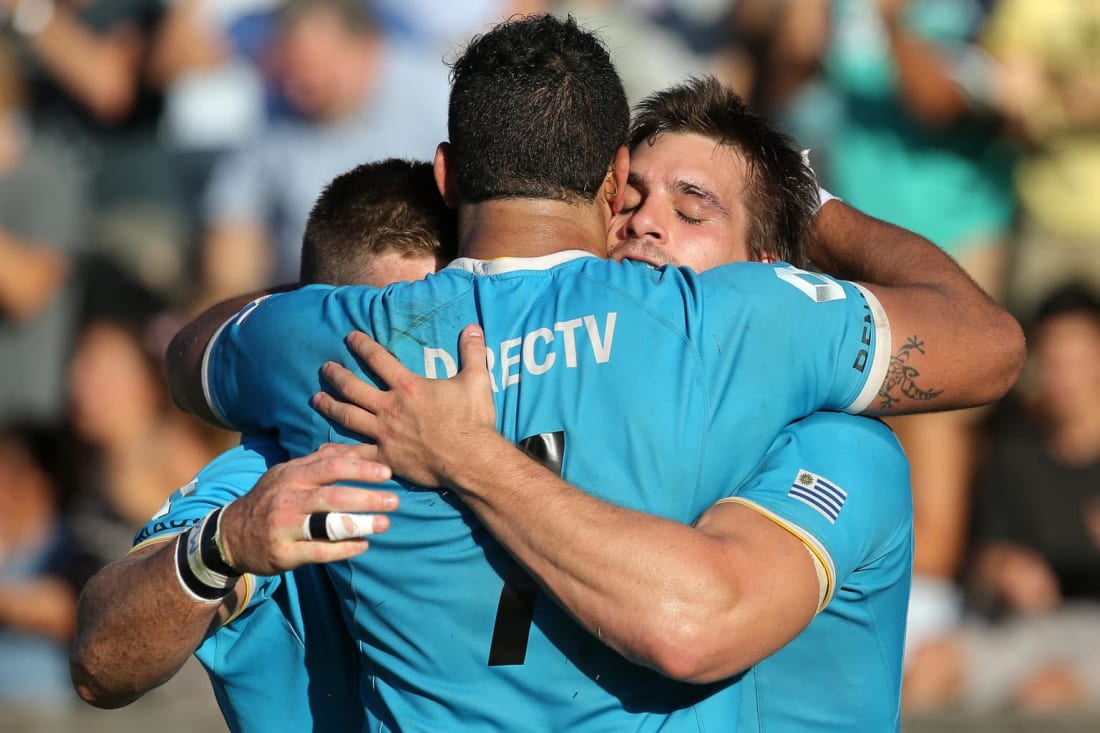
Photo courtesy of World Rugby
16. Uruguay
Uruguay is another side that is always improving. Their inclusion in yet another World Cup will only bode well for them going forward.
Key Player: Juan Manuel Gaminara. The little bulldog of a flanker will captain Uruguay to the World Cup for the first time.
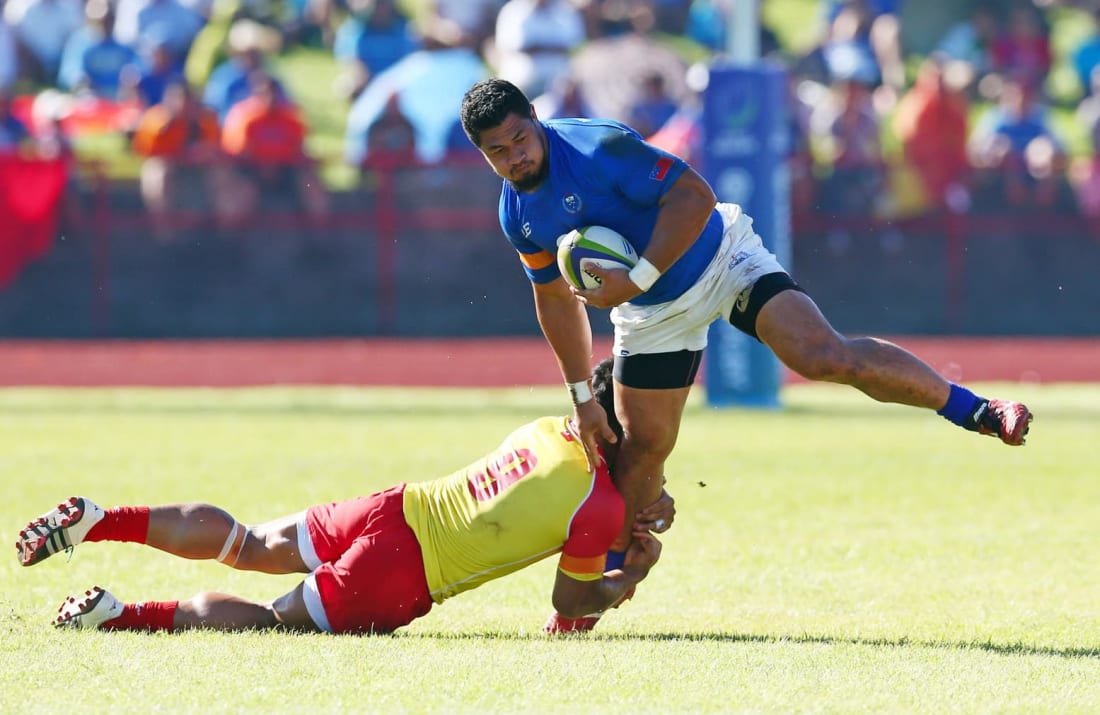
Photo courtesy of World Rugby
17. Samoa
There was a time when Samoa held the proverbial Pacific Island rugby crown, though the last few years has seen a little bit of a fall from grace. Their only victories in 2018 came against international outsiders Germany and Spain. With Ireland, Scotland and Japan in their group, they face a tough task in the World Cup.
Key Player: Chris Vui. The versatile loose forward became the youngest skipper in World Rugby in 2017.
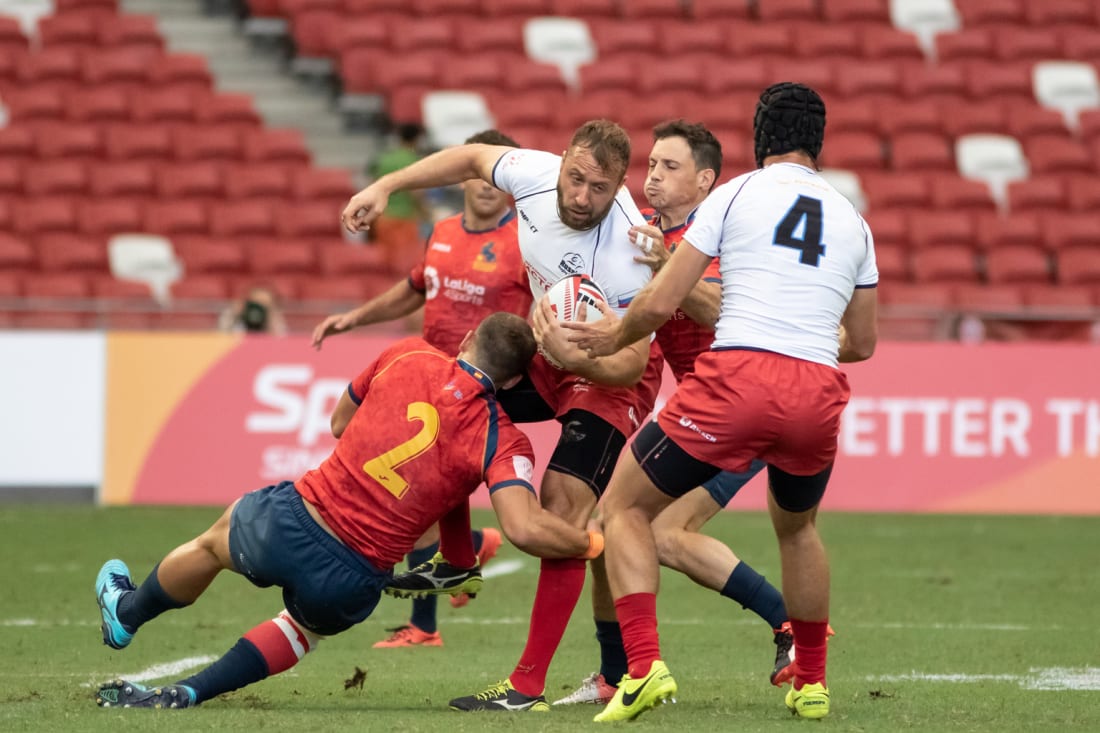
Photo: Shutterstock
18. Russia
They may not be the fittest side in the game, but they’re certainly physical. A busy 2018 saw the Russians play a lot of rugby which should help them going into this year’s competition.
Key Player: Vasily Artemyev. He grew up playing representative rugby in Ireland before returning to his homeland. The winger has notched over 80 international caps in his career thus far.
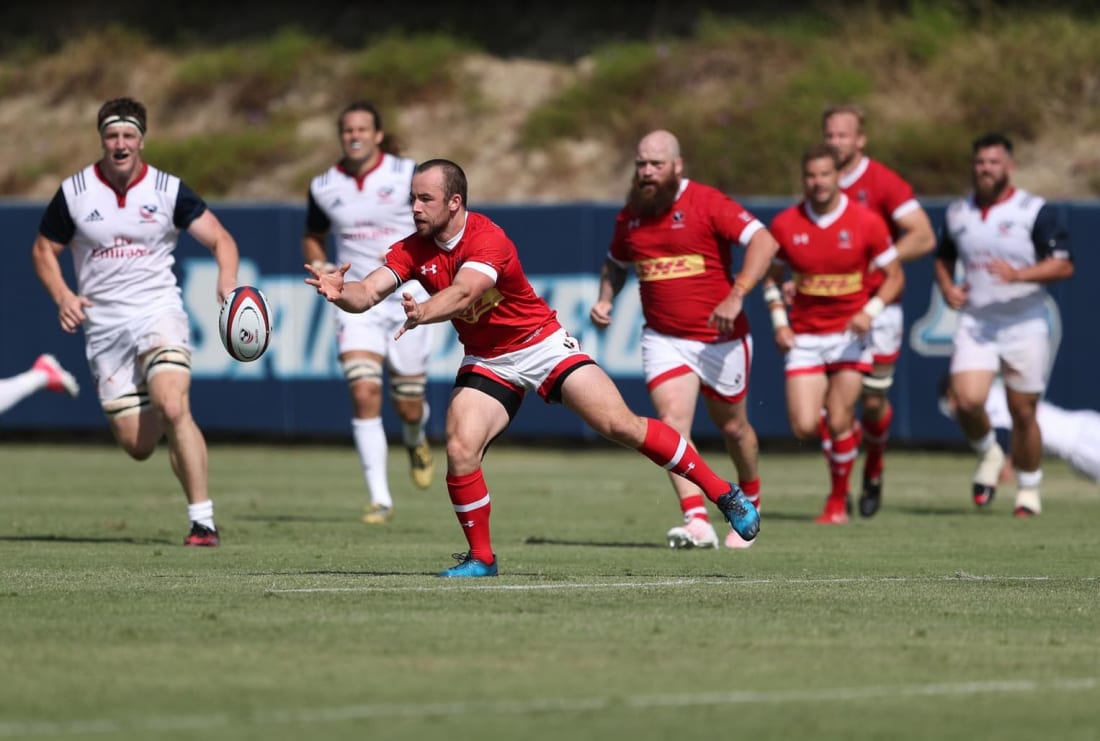
Photo courtesy of World Rugby
19. Canada
Canada is one of only two sides in the competition ranked outside of the world’s top 20. Though they’re still lagging behind their North American counterparts, they will by no means be a pushover for middle tier opposition.
Key Player: Tyler Ardron. Currently playing in New Zealand, the dynamic loose forward will be hoping to bring that experience into the Canadian dressing room in Japan.
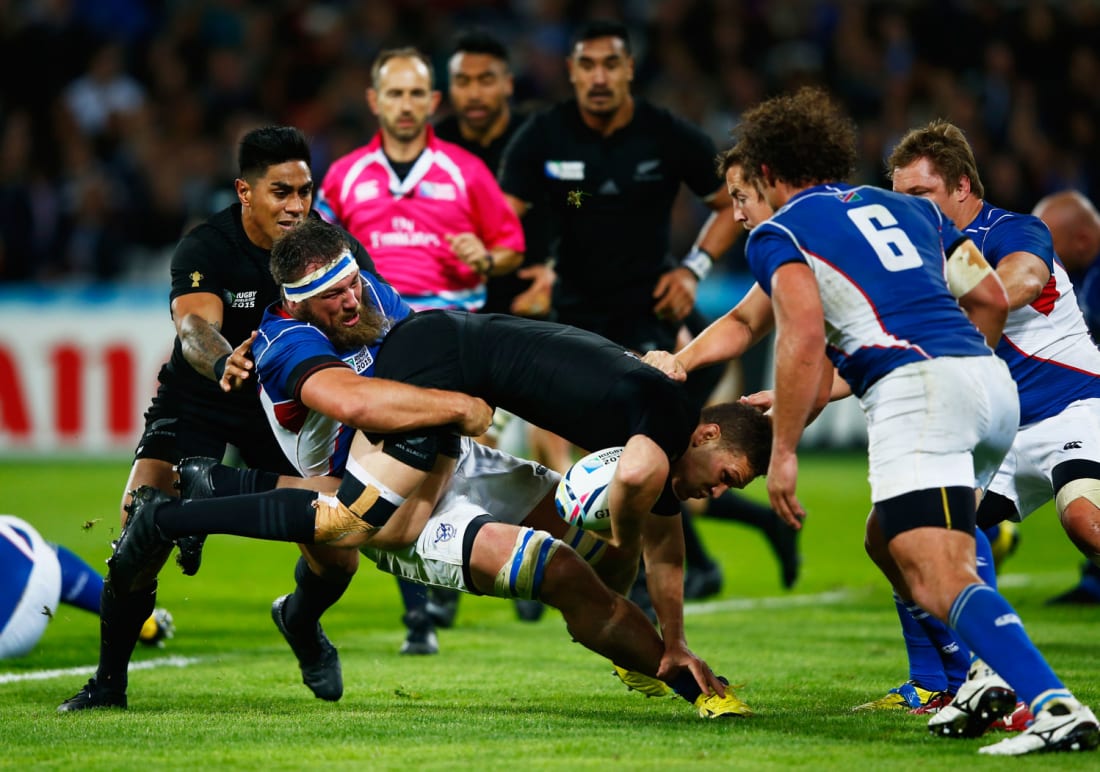
Photo courtesy of World Rugby
20. Namibia
Namibia may be the lowest ranked side in the competition but they are appearing in their sixth World Cup in a row, an impressive feat indeed. In 2003 they got beaten 142-0 by a rampant Australian side, a tournament record. But as Namibia – and other developing rugby nations – continue to improve, the days of tonne-plus winning margins in the World Cup seem a long way behind us.
Key Player: Renaldo Bothma. The flanker and captain is currently playing for the English premiership side Harlequins.
Feature image courtesy of World Rugby

